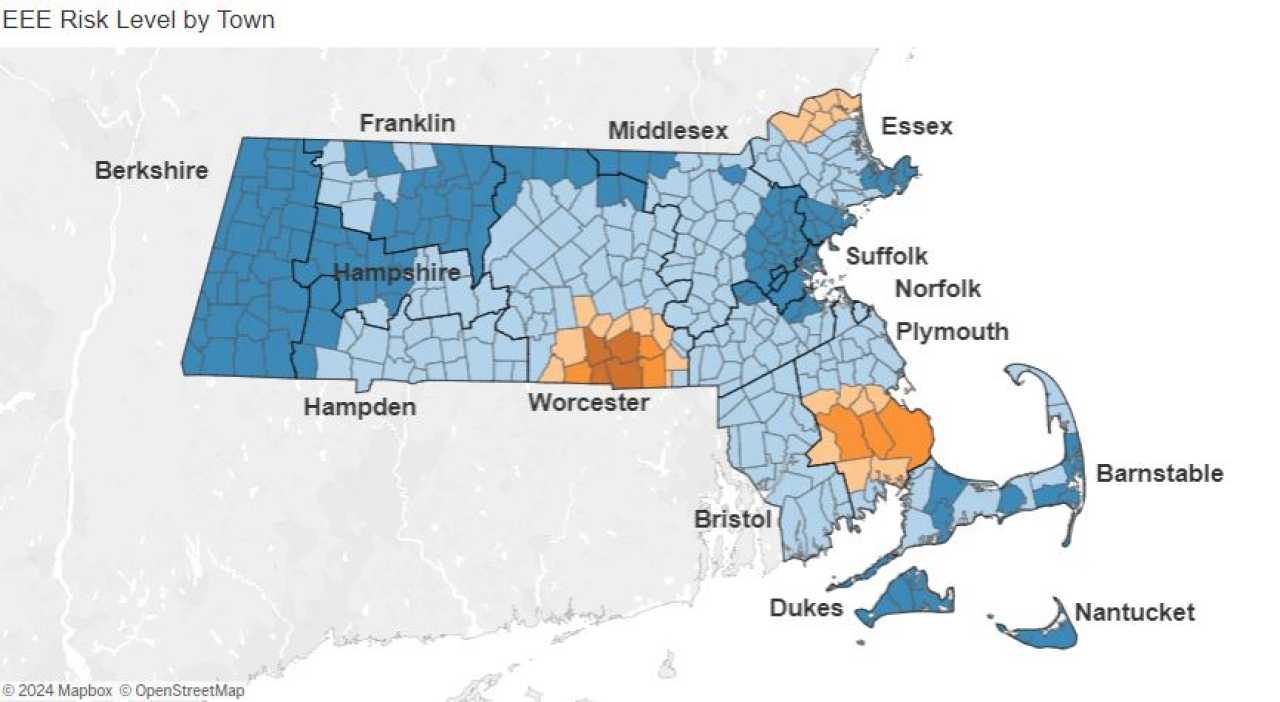Health
Massachusetts Towns Warn of Eastern Equine Encephalitis Risk

A coastal town in Massachusetts is closing its parks, playgrounds, and fields from dusk to dawn due to rising concerns about the mosquito-borne virus, Eastern equine encephalitis (EEE).
Plymouth implemented these early closures on August 23, 2024, following state health officials’ announcement regarding a human case of EEE, the first reported case in Massachusetts since 2020.
As EEE risk status was elevated to high, Plymouth’s Commissioner of Health and Human Services, Michelle Bratti, emphasized the importance of taking extra precautions while outdoors. Local authorities encouraged the public to adhere to state and local health guidelines to mitigate exposure risks.
Worcester County officials are also vigilant regarding the EEE virus. On August 24, state officials elevated the risk for several towns in Worcester and Plymouth counties.
EEE is a rare yet serious disease. Since its identification in Massachusetts in 1938, over 115 cases have been reported. Outbreaks of the virus typically occur every 10 to 20 years.
According to health authorities, the fatality rate for EEE in humans ranges from 33% to 70%, with the majority of fatalities happening 2 to 10 days after symptoms emerge.
Symptoms of EEE can include fever, headache, vomiting, diarrhea, seizures, behavioral changes, and drowsiness, with encephalitis being a frequent serious complication. Patients often experience rapid deterioration in health and may fall into a coma within a week.
Humans and certain mammals do not spread the virus to mosquitoes, despite falling ill from it. Detection of EEE is typically confirmed through symptoms and medical tests, including spinal fluid or blood tests for the presence of the virus.
No vaccines or targeted treatments are available for EEE, and treatment involves careful monitoring and supportive care by healthcare professionals.
Preventative measures are crucial, and Plymouth’s notice recommended actions such as draining standing water, wearing protective clothing, installing screens in homes, and using EPA-registered mosquito repellents.
Animal owners are also advised to eliminate any standing water around their properties to prevent mosquito breeding.
Concerns are growing not only about EEE but also about the West Nile virus. Health departments have issued warnings in light of increased West Nile virus cases reported across various states.












